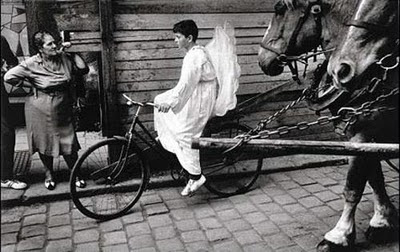
TEARS OF A CLOWN
Throughout history, from Aristophanes to Saturday Night Live, writers of comedy have tweaked the noses of the powerful to the delight of their audiences, helping to illuminate absurdities, expose abuses, and articulate grievances. There is a direct line of descent from the court jester, or fool, to today’s practitioners who continue to hold up the mirror of comedy to those in power. The powerful have nearly always tolerated this sardonic form of speaking the truth and even valued it as counsel. But the Burmese junta’s arrest and sentencing of Maung Thura, whose pen and stage name is “Zargana,” is no joke.
Zargana is currently serving a 35 year sentence for his public criticism of the Myanmar government’s response to the humanitarian catastrophe that followed Cyclone Nargis in 2008 which claimed at least 138,000 lives and affected more than 2.5 million people.
No doubt he had already made the ruling generals uncomfortable even before 2008. The country’s most popular comedian, Zargana gathered crowds that rivalled those of political leaders, and his political jibes, often artfully couched in puns and double-entendres, were and still are spread by word-of-mouth in a country where open dissent is extremely dangerous. He was first arrested in 1988 during a popular uprising calling for democratic rule. Prior to that, in acknowledgment of the Burmese version of the court jester tradition, the regime had invited him to perform on more than one occasion. In 1990, however, his comic impersonation of one of the junta’s generals resulted in a five year prison sentence, his poems and sketches were banned, as were the many films he directed, and he was forbidden to perform in public.
As if to let him know that they had not forgotten him, the generals arrested and briefly detained Maung Thura for his support of the Burmese monks of Rangoon during their 2007 walking protests, which brought about a brutal and bloody crackdown.
And then there was the cyclone and its tragic devastation, followed by the junta’s news blockade and paranoid refusal of international aid. Putting aside the puns, the doublespeak, and the jokes, Zargana went to work to alleviate the suffering of his people by orchestrating a worldwide network of private donations for the relief of the cyclone’s victims. Recognized as a prisoner of conscience by Amnesty International and the recipient of this year’s annual Vasyl Stus Freedom to Write Award from PEN New England, Maung Thura is serving his current sentence for this selfless action, and for speaking the truth about the extent of the devastation.
Recently, in this country, we have seen comedian Stephen Colbert address a congressional committee, President Obama appear on the Jon Stewart Show, and a rally in Washington organized by Stewart and Colbert. In the last election Al Franken, former Saturday Night Live comedian, won a seat in the U.S. Senate. Intelligent comedy, dealing with the social order, is always controversial; as such it is a necessary ingredient of political discourse. It is also protected speech by virtue not only of centuries of tradition, but by the Universal Declaration of Human Rights.
After Myanmar’s elections on November 7, the government’s most famous prisoner, Aung San Suu Kyi, was released. However, over 2,000 political prisoners, like Zargana, remain in custody. Their continuing imprisonment calls into question the commitment of Burmese rulers to anything more than democratic window dressing.
Richard Hoffman is Chairman of PEN New England; Joshua Rubenstein is Executive Director of Amnesty International, Northeast Region.


























